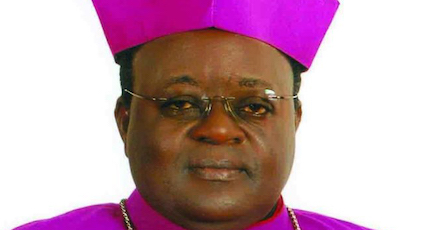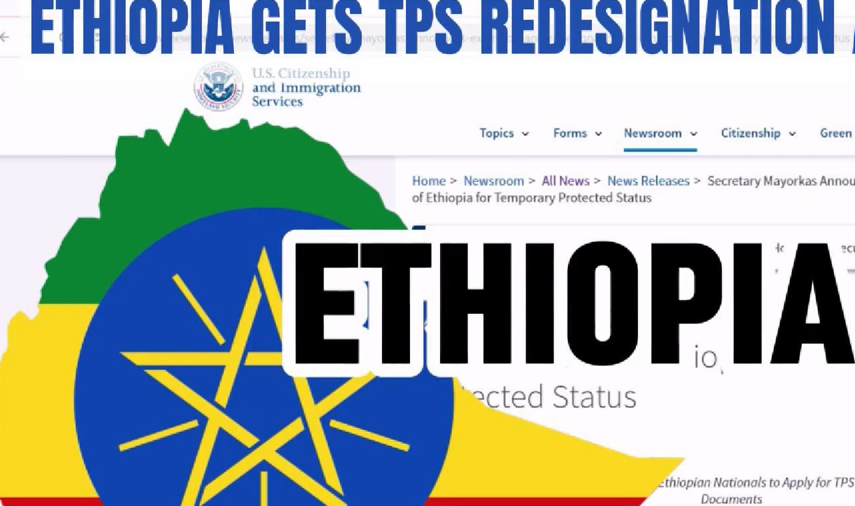Archbishop Lwanga. Photo: Religionnews.com
I logged onto Facebook and found that veteran opposition leader Dr. Kizza Besigye had posted some alarming words about the death on April 3 of Archbishop Cyprian Lwanga which read in part:
“During Easter holiday of 2018, Archbishop Lwanga made a startling revelation of how he was being spied on by government.
He said an “anonymous caller” had informed him that he was plotting to overthrow the government.
Towards end of March, a Ugandan tabloid, known for close links with Uganda’s Security Organisations, carried shouting headline stories about impending removal of the Archbishop and there were social media stories echoing the threats on the Archbishop’s life.
Three years since the Easter holiday that he publicly talked about threats on his life, he once again raised his voice (on Good Friday) against Human Rights abuses and government excesses; carried the cross along the symbolic “way of the cross”; went home and never woke up.
The day-long postmortem exam that was carried out didn’t show any such cause; it’s reported to be INCONCLUSIVE!”
This reminds me of when my father passed away in 1994. He was admitted to hospital in Mulago and told by the doctors that they were conducting “tests” to see what ailed him. On and on they went, sometimes saying it was “cerebral malaria” and other times pneumonia. What I saw on his death certificate was cerebral meningitis! As a teenager, I was confused as to how “inconclusive” their quack diagnoses were.
In the throes of his final breath, my father became even more militant than he had ever been previously. Refusing all medication, he still sought second opinions from doctors who told him that he didn’t have AIDS. Yet, he was losing weight and seemed to have all the telltale signs of a man being ravaged by a wasting disease. Or was it something more sinister?
I once read the following posting online after my father’s passing: “Benjamin Matogo, Uganda’s High Commissioner to Tanzania, 1994. Matogo had gained sensitive information that Museveni masterminded the genocide against the Tutsi of Rwanda even before Habyarimana was assassinated. Ugandan intelligence intercepted his communication in which they knew he knew of Museveni’s role in both the assassination of Habyarimana and Ntarymira and the Ugandan death squads Museveni got to dress up as Hutu extremists that would kill Tutsis at random as he had done in Luwero Triangle. Matogo was killed using a slow-acting poison.”
I instantly dismissed them. But I also made sure I shared them with my brother Martin. “I don’t know about this but there are a lot of unanswered questions about dad’s death,” Martin replied via email. Hmmmm . . .
During the soft tranquility of a Kampala night, the moon and stars shone with the milky wetness of a kiss from the heavens. It was 1993 and Uganda was in the process of making a new constitution to cement the NRM revolution, as it were. Prof. Dan Mudoola and Dr. Francis Kidubuka, both academics of note at Makerere University, were having a drink in Wandegeya in a watering hole located just below the main university campus.
At the time, Mudoola was the vice chairman of the Constitutional Review Commission. This Commission was tasked with collecting and collating views from around the country which would serve as reference points in the Constituent Assembly during the constitution making process.
As the two lecturers raised a glass to democracy and Uganda’s good health, an explosion occurred. Both of them died instantly from this bomb attack. “Oh no. I was on my way to join them that very night,” my father said.
The two were certainly assassinated and because their deaths have become cold cases, it seems the person(s) who killed them were powerful enough to ensure that nobody ever discovered who killed them. My father would’ve died with these two distinguished academics had he joined them, as planned, that night. Mercifully, he did not and his last breath was deferred.
However, dying alongside the two academics might have been a case of mercy killing. For the pain and suffering he endured until his death the following year was enough to make the living envy the eternally damned. As I wrote earlier, he was in and out of hospital for a year. He started taking ill soon before the Arusha Peace Talks began in 1992.
What were these monumental talks about? Well, the Rwandese Patriotic Front (RPF) declared a ceasefire on 12 February 1993, with the Rwandese government forces led by President Juvénal Habyarimana. A new ceasefire agreement was announced and came into effect on 9 March 1993 and the warring parties agreed to hold further talks in Arusha, Tanzania, on 15 March.
During this cessation of hostilities, the Rwandan combatants from both sides were a fixture in Tanzania. Since Uganda’s sympathies squarely lay with the RPF, my father as ambassador provided “assistance” to its leaders. Paul Kagame actually slept in my bedroom for 3 days while I was away at school in Uganda.
It is also fact that my father was the person who escorted President Juvénal Habyarimana and Burundian president Cyprien Ntaryamira to their aircraft before their ill-fated fated journey on the evening of 6 April 1994.
As the world is aware, this aircraft carrying the two presidents was shot down with surface-to-air missiles as it prepared to land in Kigali, Rwanda.
The assassination of the two presidents triggered the Rwandan genocide, which led to the deaths of over 800,000 Rwandans in a hundred day killing spree which would’ve impressed Adolf Hitler. What did my father know about this assassination that may have placed him in peril of his own knowledge? It is clear that my father, like the rest of us, was an eyewitness to a murder most foul. However, unlike the rest of us, he was right in the thick of things.
He certainly heard the two presidents’ last words before they boarded the plane. And might’ve have been party to their presentiments regarding the true outcome of the Arusha Accords between the Rwandan Patriotic Front and Habyarimana’s National Republican Movement for Democracy and Development (MRND).
In America, the Mafia, or the Mob, used to perpetrate “rub outs” or killings evidenced by spasms of violence in which people were killed as their bodies were left sprawling in underground garages, jammed into car trunks, dumped into landfills or cremated. Usually such killings involved witnesses too close to the Mafia’s operations, those who knew and saw too much. They thus became expendable and had to be “cancelled”.
Could my father have been a victim of a classic Mob-style slow “rub out”? We all know the Uganda government is likened to a Mafia presence by most Ugandans, so I will let you be the judge. My father had told me a few months before he died that he had “enough information” to collapse the Museveni government in a single day. As he lay dying in hospital, it started to slowly dawn on me that if he indeed had such sensitive information then he was clearly a marked man. In time, I am sure that the truth will be revealed about his and the Archbishop’s death.
I leave you with the words of the late writer Ernest Hemmingway: “The world breaks everyone and afterward many are strong at the broken places. But those that will not break it kills. It kills the very good and the very gentle and the very brave impartially. If you are none of these you can be sure it will kill you too but there will be no special hurry.”
The columnist can be reached via [email protected]












